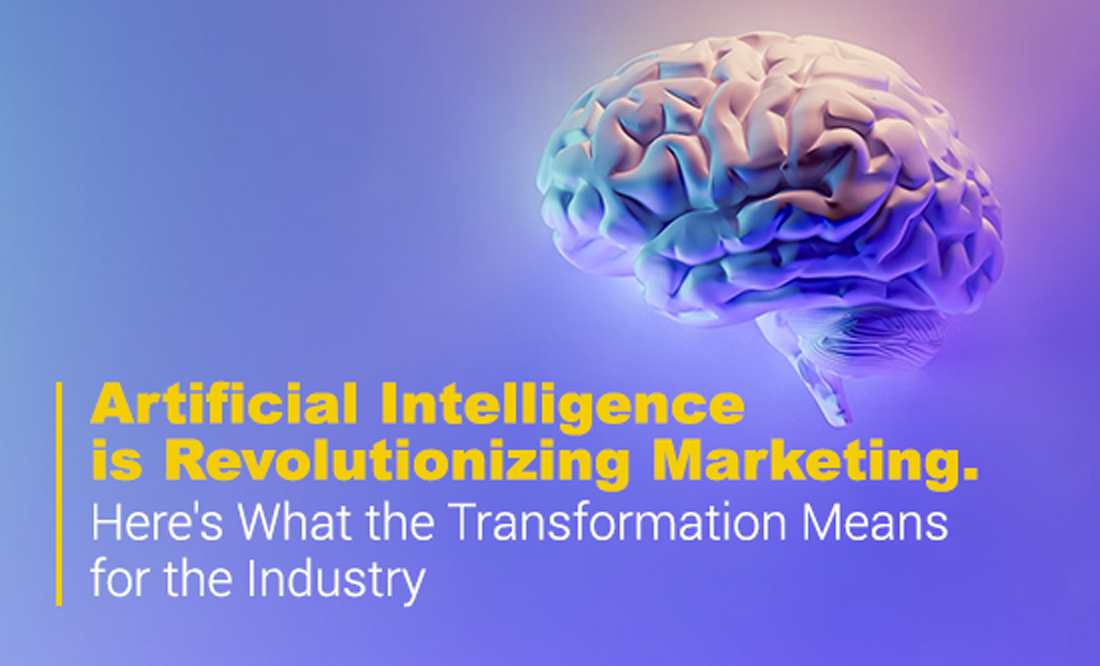Artificial intelligence technology is changing how marketers reach and engage customers. From programmatic advertising to data analysis, AI can help marketers do a better job, but this rapidly evolving field also raises concerns and uncertainties.
Artificial intelligence (AI) has started transforming every aspect of our professional and personal lives. The marketing industry is not immune to this digital transformation, with leading brands starting to embrace the opportunities the technology brings. Gaining a better understanding of customer behavior is one of the core benefits of AI in marketing.
For years, marketers have gathered and analyzed data about customer behavior. Their goal has remained largely unchanged — extrapolate patterns and predict which products and services will be most popular with a certain audience. From that basis, marketers would then identify the channels to reach their target customers.
AI is giving marketing professionals an essential advantage in this quest. This fast-evolving digital technology can analyze more data more accurately than humans can. AI and its subfields, such as machine learning (ML), also identify existing behavioral patterns and predict future behavior based on that.
The growing role of AI in marketing
In 2020, the market for artificial intelligence technologies in marketing was valued at just over $12 billion. While that may seem impressive, it pales in comparison with the global AI market, which was valued at over $325 in 2021. However, the current market size does not reveal the true potential of marketing-related AI. That only becomes clear by considering growth predictions.
According to experts, the market for AI in marketing will exceed $35 billion next year, nearly tripling in size in only four years. Another four years later, in 2028, industry insiders believe that this area of the marketing industry will have tripled once again. Statisticians expect that marketers will utilize AI to a value of nearly $108 million before the end of this decade.
The growing role of AI in marketing
In 2020, the market for artificial intelligence technologies in marketing was valued at just over $12 billion. While that may seem impressive, it pales in comparison with the global AI market, which was valued at over $325 in 2021. However, the current market size does not reveal the true potential of marketing-related AI. That only becomes clear by considering growth predictions.
According to experts, the market for AI in marketing will exceed $35 billion next year, nearly tripling in size in only four years. Another four years later, in 2028, industry insiders believe that this area of the marketing industry will have tripled once again. Statisticians expect that marketers will utilize AI to a value of nearly $108 million before the end of this decade.
These platforms cannot only compute data about user behavior, website analytics, and demographic information. They also see trends and patterns before humans can. Marketing professionals can then use those insights to make their content more relevant, increasing the likelihood of customer engagement. Plus, marketing algorithms can optimize ad placement and bid pricing.
Understanding AI-related concerns in marketing
Like most powerful technological developments, AI has raised some concerns in the industry. In addition, marketers starting to invest in AI technology are dealing with unanswered questions as the technology continues evolving at great speed. Two of the main concerns relate to customers and marketers themselves. These concerns are privacy, data protection and job security in the industry.
Protecting privacy — AI and ML rely on access to large quantities of customer data to recognize patterns and predict potential behavior. Despite their far-reaching capabilities, these technologies cannot self-police. They will analyze any data fed to them. Marketers need to ensure that their data collection and usage practices are not only ethical. They must also comply with current privacy and data protection legislation, such as the European Union’s GDPR or the California Consumer Privacy Act (CCPA).
Job security for marketers — Job security for marketers is another concern about the growth of AI-based applications. Most recently, these concerns have been discussed in connection with OpenAI’s ChatGPT software. Granted, it is not possible to predict entirely where the marketing industry is headed, but most experts believe that AI and ML will change existing jobs rather than replace them. Marketers can work more efficiently and effectively to benefit the brands they represent. Their daily routine may change, but it is unlikely that robots will replace human marketers anytime soon.
Final thoughts
While AI has the potential to transform the marketing industry as we know it almost beyond recognition, the technology is not here to replace human marketers. Instead, AI and ML can optimize and streamline current marketing approaches.
Both technologies can also take care of repetitive tasks, allowing their human team members to focus on what they are best at and develop creative campaigns that engage more customers than ever before.
The following JESSICA WONG from 2023 provides their research perspective. HERE
